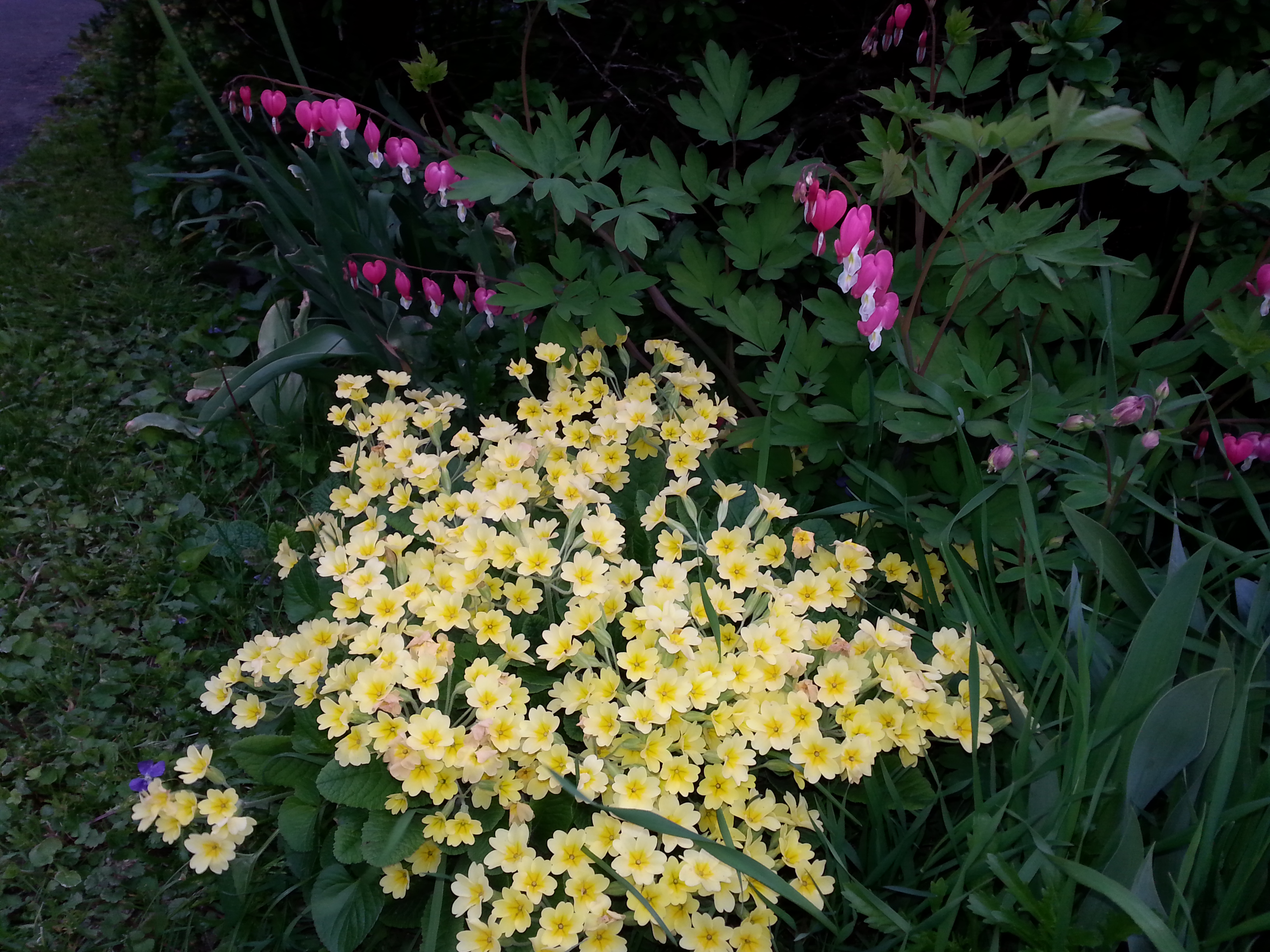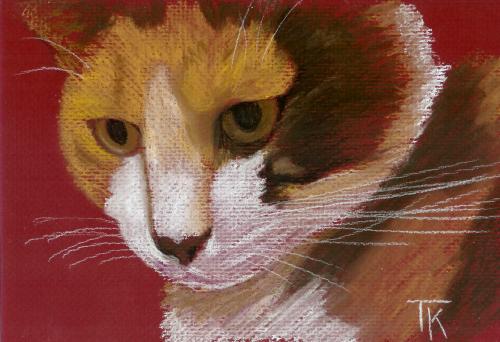 A few years ago, I was taking a meditation class and the teacher asked us to, over the next week, make a mental note any time we had a judgemental thought. I got a lot of chances to notice.
A few years ago, I was taking a meditation class and the teacher asked us to, over the next week, make a mental note any time we had a judgemental thought. I got a lot of chances to notice.
This noticing brought to the forefront a question I’d always had. I hear “don’t judge,” but how am I supposed to relate to a world in which bad things happen, if I don’t judge them to be bad? Is the alternative to judging just saying, “Sure, whatever”?
Because of the way my brain works, I need to break a problem down to its structure to move forward. The intuition that guides others doesn’t work for me, just makes me uneasy. I realized I needed to really understand what it means to judge, and I came up with this definition:
To express an opinion, usually about morality, as though it is a fact.
Most of us understand the difference between fact and opinion most of the time, but I think there is still confusion, often I think because of the way English works. I say “spiders are scary” as though it is a property of the spiders. Spiders = scary. But it isn’t at all – it’s a property of me that I find spiders scary. I = scared of spiders. They are just what they are, flesh, eyes, legs, spinnerets, silk. If you think spiders are beautiful and I think they’re scary, we could each believe the other person is wrong and have an argument. Or… we can realize that I am scared of spiders and you are not. No conflict. As two examples of real-world confusion on this, my relative is absolutely convinced that all snakes are scary and that therefore they should all die (there are no dangerous snakes where we live). My friend believes that New York State wine is disgusting and therefore should all be poured down the drain. They believe I am mistaken for believing snakes to be neat and NYS wine to be tasty. They are expressing their opinion as though it is a fact. The only reason we may not experience their statements as judgement is that we are not their targets. If I were a snake I probably would feel judged by this relative, because scary in this case is negative. If she says I am scary in my Halloween costume, that is probably good.
As an aside, decades ago I realized that the fear of spiders was part of me, not the spiders, and I decided not to act on it any more. It is not their fault that I am afraid of them. My fear went way down.
So, we can usually recognize opinions like that. But what about opinions about morality? I think we sometimes think that morality can be a fact. I don’t think it ever can. We can say “stealing is wrong” but this is not a truth of the universe like “the earth revolves about 365 times before it goes once around the sun.” “Stealing is wrong” is an opinion. “Stealing usually causes harm to the victim” is a fact. But “causing harm is wrong” is still an opinion.
So where does that leave us? Do we just throw up our hands and say “anything goes”? Of course not. First of all, we are allowed to have an opinion. When you catch a thief, I don’t think it is judgemental to say, “your actions harmed someone and I think people shouldn’t hurt others.” A fact and an opinion, clearly stated as such. The other person can respond, “I think it’s fine to hurt others,” and you are clearly disagreeing about an opinion, which is OK. (If I say, “You’re bad,” and the other responds, “No, I’m not,” now we think we are arguing about a fact.) Note that the law is allowed to punish people based on opinions. That doesn’t make stealing wrong – it just makes it illegal.
I like to do better than us just stating our opinions with folded arms, though. Instead of shoving my opinion onto others, I prefer to find out what they think and ask them to reflect. I call this “discernment,” and it’s my functional replacement for judgement. Here’s the structure:
- A conditional regarding what the other person believes.
- A humble expression of questioning.
- Asking about their strategy.
and in practice it looks like this:
If you believe it is wrong to harm others, are you sure that taking what belongs to others is going to support who you want to be?
The conditional (#1) is hopefully something you have discussed with the person just before this. You don’t blast forward and assume the person shares your opinion – you ask! “Do you believe it’s wrong to harm others?”
The question (#2) has to be genuine, not snotty or sarcastic (“Do you really believe that!?”). You are leaving space for the other person to enter into a genuine dialogue with you, a space that is obliterated by a finger-pointing “You’re bad!” – what is anyone supposed to do with that? To do this you need to open your heart to the possibility that the other person may be “right” – anything less and the other person will see you are not genuinely interested in hearing them. This is scary because it makes us vulnerable – what if his argument is better than mine!? But if our opinion changes as a result of open dialogue, that’s good, right? As long as our well-being is not wrapped up in being right, we will not suffer if we decide to change our mind. The wish to be open is what makes me try to use humble wording at all times – so that 1. if I am wrong, it is easy to admit it and change, and 2. I am causing less harm to others. I have come to like finding out I am wrong, because it gives me feedback that I am open, which is how I want to be in the world.
Asking about their strategy (#3) is where we suggest that they reflect on whether what they say they are doing supports the person they have said they want to be. Do you see that I have made this all about them and what they believe, and I and my opinion are nowhere to be found? Sometimes the question part takes the form of “I’m not sure that…,” but that’s pretty gentle, and I’m inviting them to help me figure it out. An important part of asking about their actions is to scrub every whiff of judgement out of your description – just the facts! Watch for opinions or even trigger words that imply your opinion, or the goodness and badness of something – let them figure out for themselves the compatibility of their actions to their values, when they are plainly laid side by side.
I use this everywhere. If you talk to me for very long, you will hear this kind of sentence. I’ll use it now. Instead of saying “judgement is bad,” I’ll say, “If you’d like to reach people instead of driving them away, I’m not sure that forcefully stating your personal opinions is going to get you there.” And this isn’t some sort of act I put on – I think this way.
This is a vegan blog, and here’s the alternative to “You’re bad for eating meat.” First I work out whether the person believes it’s wrong to harm animals for no good reason. Usually you can just ask people that and 99% of people will agree. Then: “I can see that you are a caring person. If you believe it’s wrong to harm animals for no good reason, I am not clear on why you would want to eat animals or anything coming from them. It all causes them harm, which is the opposite of who you say you want to be.” I may need to follow up on the issue of what is harm, and what is necessary, but those are pretty easy. The conversation would be larger than this – just asking what they believe and then throwing my discernment statement at them could be perceived as aggressive. But you get the idea. There’s no “You’re wrong, you’re bad, you should change.”
Discernment is a gentler, more loving, and I believe more effective, way to relate to a world where people are doing things we disagree with. It allows us to engage while being the peace we want to see in the world.














